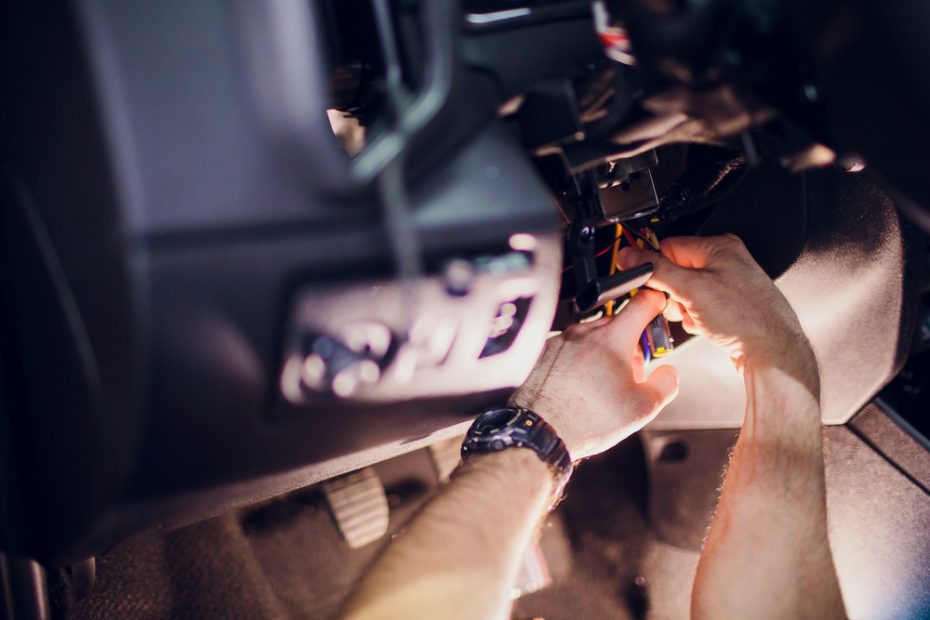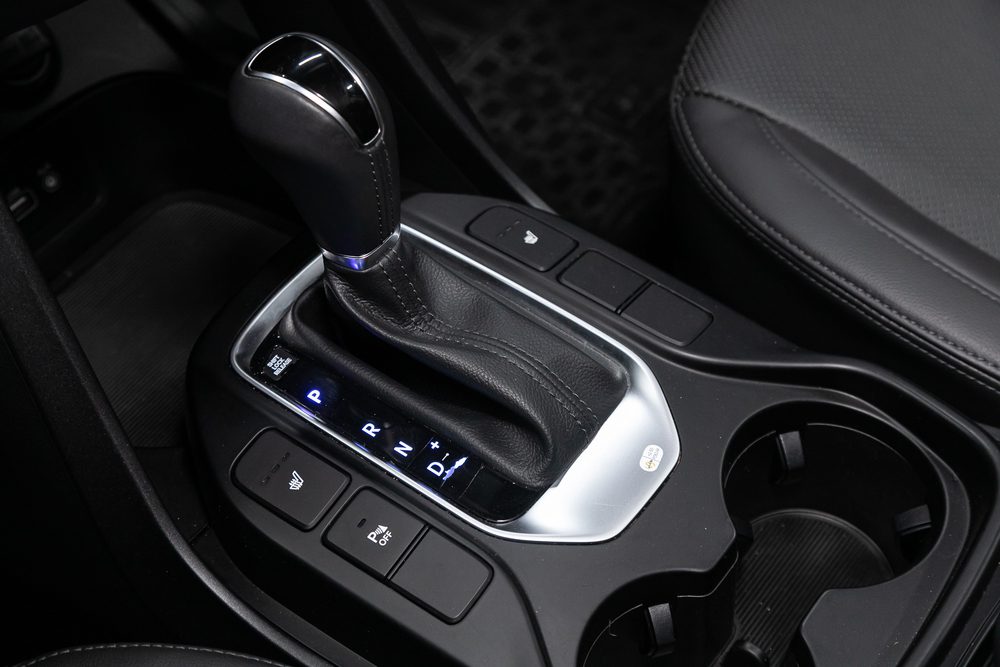What does ECU affect in car?
The Electronic Control Unit (ECU) plays a crucial role in the functioning of modern cars. This small but powerful computerized device is responsible for controlling various aspects of the vehicle’s performance, ensuring optimal functionality and efficiency. From managing the engine to controlling safety features, the ECU affects numerous systems within the car.
Engine Performance
One of the primary functions of the ECU is to manage the engine’s performance. It continuously monitors various sensors placed in different parts of the engine and uses the information gathered to adjust fuel delivery, ignition timing, and other vital parameters. This optimization helps maximize power output while ensuring fuel efficiency and reducing emissions.
Transmission
The ECU also has control over the transmission system, whether it is a manual or automatic transmission. It determines the optimal shift points based on factors such as engine speed, throttle position, and load. By making precise adjustments, the ECU ensures smooth gear changes, preventing unnecessary wear and tear on the transmission components.
Safety Systems
In recent years, vehicle safety has become a top priority, and the ECU plays a significant role in this aspect. It oversees the functioning of various safety systems, including anti-lock braking (ABS), traction control (TC), and electronic stability control (ESC). These systems rely on sensor data processed by the ECU to intervene when necessary, ensuring the vehicle remains stable and safe in critical situations.
Environmental Controls
With the growing concern for the environment, car manufacturers are incorporating advanced systems to reduce emissions and improve fuel efficiency. The ECU is instrumental in achieving these goals by accurately controlling the air-fuel mixture, exhaust gas recirculation, and other variables that impact emissions. By optimizing these parameters, the ECU helps vehicles meet increasingly stringent emission standards.
Diagnostic and Troubleshooting
The ECU acts as a diagnostic tool, monitoring various components and systems within the car. It can detect and store fault codes that indicate potential problems. These codes are often retrieved using specialized diagnostic equipment or software by trained technicians. This capability allows for efficient troubleshooting and repair of any malfunctions, saving both time and money.
Fun Fact: Some performance-oriented cars feature programmable ECUs that allow enthusiasts to tweak various parameters to enhance performance.
Overall, the ECU is a vital component in modern vehicles, affecting multiple aspects of car functionality. From engine performance to transmission control, safety systems to environmental controls, and diagnostics to troubleshooting, the ECU plays a crucial role in ensuring a smooth, efficient, and safe driving experience. Its ability to continuously monitor and adjust various parameters sets the foundation for modern automotive technology.
What causes ECU malfunction?
The ECU or Engine Control Unit is a vital component in a modern car that controls various aspects of the vehicle’s performance. However, like any electronic device, it is susceptible to malfunctions. Here are some common causes of ECU malfunction:
1. Electrical Issues
One of the primary causes of ECU malfunction is electrical issues. This includes problems such as short circuits, loose connections, or faulty wiring. These issues can disrupt the communication between the ECU and other components, leading to malfunctions.
2. Software Glitches
Software glitches can also result in ECU malfunctions. These glitches can occur due to programming errors, corrupted software updates, or conflicts with other software systems in the car. When the ECU’s software is not functioning correctly, it may cause abnormal behavior in the vehicle.
3. Sensor Failures
The ECU relies on various sensors to gather information about the engine, exhaust system, and other critical components. If any of these sensors fail, it can lead to inaccurate data being sent to the ECU, which can then trigger malfunctions or error codes.
4. Environmental Factors
Extreme temperatures, humidity, or exposure to water can also cause ECU malfunctions. Moisture or corrosion in the ECU’s connectors can interfere with its proper functioning, leading to performance issues.
5. Age and Wear
Over time, the ECU can deteriorate due to general wear and tear. Components within the ECU may start to fail, leading to malfunctions. Additionally, as a car gets older, the ECU may become outdated, making it more susceptible to malfunctions.
It’s essential to address ECU malfunctions promptly to avoid further damage to the vehicle. If you suspect an ECU issue, it is recommended to consult a professional mechanic or technician who can diagnose and repair the problem.
“ECU malfunctions can affect the overall performance of your car, so it’s crucial to take them seriously and address them promptly.”
What is ECU Diagnostic?
An Engine Control Unit (ECU) is a vital component in modern cars, responsible for managing various engine functions. It controls and monitors key aspects such as fuel injection, ignition timing, emissions control, and overall engine performance.
In the event of a problem or malfunction, an ECU diagnostic refers to the process of using specialized equipment to retrieve and interpret data from the car’s ECU. This diagnostic tool provides valuable insights into the car’s electronic systems, helping mechanics identify and troubleshoot issues effectively.
The ECU diagnostic can reveal a wide range of information, including:
- Error codes – Identifying specific faults or malfunctions within the engine system.
- Sensor readings – Monitoring real-time data from various sensors, such as oxygen sensors or throttle position sensors.
- Performance data – Providing information on the engine’s efficiency, power output, and fuel consumption.
By connecting a diagnostic scanner to the car’s onboard diagnostic port, mechanics can access the ECU data and perform various tests and adjustments. This allows them to pinpoint the root cause of any issues and make necessary repairs or adjustments.
Why is ECU Diagnostic Important?
The ECU diagnostic plays a crucial role in modern car maintenance and repair. Here are some reasons why it is important:
- Effective problem diagnosis: The ECU diagnostic provides precise and accurate information about the car’s engine system, enabling mechanics to diagnose problems quickly and accurately.
- Efficient repairs: With access to detailed data and error codes, mechanics can efficiently address the root cause of a problem without relying solely on guesswork.
- Preventive maintenance: Regular ECU diagnostics can help identify potential issues before they become significant problems, allowing for timely maintenance and preventing costly breakdowns.
ECU diagnostics are like a doctor’s check-up for your car, providing vital information about its health and performance.
In conclusion, an ECU diagnostic is a critical process that helps mechanics in the UK accurately diagnose and repair issues with a car’s engine system. By utilizing advanced diagnostic equipment and interpreting ECU data, mechanics can efficiently address problems, ensure optimal engine performance, and maintain a reliable vehicle.
What happens when the ECU goes out?
The Engine Control Unit (ECU) is a vital part of your car’s electronic system. It acts as the brain behind various functions, including fuel injection, ignition timing, and emission control. When the ECU malfunctions or completely fails, it can lead to a range of issues with your vehicle’s performance and drivability.
1. Loss of Engine Power
One of the primary effects of a faulty ECU is a significant loss of engine power. The ECU controls the fuel and air mixture ratio, as well as the timing of ignition, which directly affects the engine’s power output. When the ECU fails, it may not be able to deliver the right commands to these essential systems, resulting in reduced engine performance.
2. Poor Fuel Efficiency
A malfunctioning ECU can also contribute to poor fuel efficiency. Since the ECU regulates the fuel injection process, an issue with this component can result in an incorrect fuel-to-air ratio. This imbalance leads to increased fuel consumption and can significantly impact your overall mileage.
3. Difficulty Starting the Engine
When the ECU goes out, you may experience difficulties starting your car. The ECU communicates with the starter system and provides the necessary commands to initiate the engine ignition process. A faulty ECU can disrupt these commands, making it harder for your car to start or causing it not to start at all.
4. Irregular Idling
If your vehicle’s engine is idling irregularly or fluctuating between high and low RPMs, it could be due to a failing ECU. The ECU controls the idle speed and maintains a stable RPM when the engine is idling. A dysfunctional ECU may struggle to maintain this stability, resulting in an uneven idle.
5. Warning Lights and Error Codes
A failing ECU often triggers warning lights on your car’s dashboard, such as the Check Engine Light or various other indicator lights. These lights serve as a signal that something is wrong with the vehicle’s electronic systems. Additionally, when a diagnostic tool is connected, it may reveal specific error codes related to the malfunctioning ECU.
Quote: “A faulty ECU can have significant implications on both the performance and drivability of your vehicle.” – Car Expert Magazine
Dealing with a faulty ECU requires professional diagnosis and repair. In some cases, the ECU may need to be replaced entirely. It is important to consult with a qualified mechanic or automotive technician to accurately diagnose and address any issues with your car’s ECU.



